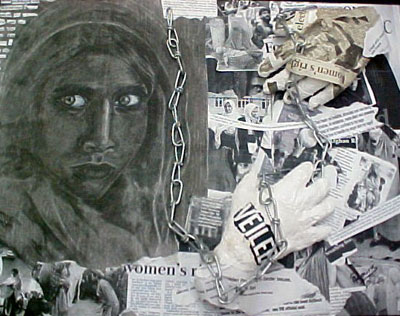All Nonfiction
- Bullying
- Books
- Academic
- Author Interviews
- Celebrity interviews
- College Articles
- College Essays
- Educator of the Year
- Heroes
- Interviews
- Memoir
- Personal Experience
- Sports
- Travel & Culture
All Opinions
- Bullying
- Current Events / Politics
- Discrimination
- Drugs / Alcohol / Smoking
- Entertainment / Celebrities
- Environment
- Love / Relationships
- Movies / Music / TV
- Pop Culture / Trends
- School / College
- Social Issues / Civics
- Spirituality / Religion
- Sports / Hobbies
All Hot Topics
- Bullying
- Community Service
- Environment
- Health
- Letters to the Editor
- Pride & Prejudice
- What Matters
- Back
Summer Guide
- Program Links
- Program Reviews
- Back
College Guide
- College Links
- College Reviews
- College Essays
- College Articles
- Back
Bring on the Lights
Try to imagine a time when audiences would intently watch four string players in bleak outfits sit stagnantly in chairs as they perform the “Dissonance” String Quartet. Try to imagine that same group bowing as audience ruptures in thundering applause. This is what music once was. It was not about the performer’s clothes. It was not about the bombastic dance moves. Music was about music. Over a century ago people would go to concerts to listen, not to watch. The thrill of hearing Rachmaninoff in live performance, for instance, was not because of his charismatic stage presence but rather his clear, expressive playing.
All musical works are introduced to the public in a premiere performance. Then a second, third, fourth performance and eventually each concert of that piece is nothing but a tribute to the original composer. Tribute concerts are the platform that keep any piece relevant to a modern society. Musicians are tasked with the job to maintain that platform through their lifetime so that works can be passed down from generation to generation. Once the musician fails to captivate his audiences, a work begins its path to extinction. For this reason it is the job of performers to preserve their genre through time so that it is not rejected by the public.
Take musician Lang Lang as an example. He started his career as Andre Watts’ understudy and has ever since devoted himself to the renovation and preservation of classical music, classical being a broad term for music from the Classical era as well as the Baroque, Romantic, Post Romantic, and Contemporary eras. Lang Lang gives over a hundred concerts a year and in those concerts he collaborates with modern groups such as Metallica thereby invoking interest with young people. He also has his hair carefully molded into an exciting spike before each performance and wears glittery clothes to thrill his audiences. Liberace, one of the first to modernize the classical concert, shows up on stage in over the top outfits covered with sequins and other eye-catching objects and plays beneath his massive candelabra. With this, the classical concert was reborn in a way that intrigued the modern audience.
The original classical concerts were not classical at all. They were, at the time, today’s rock concerts in that they were what audiences recognized as standard practice. Audiences expected a formal setting with appropriate clothing and no ambiguous chatter as performers presented their work. It was the norm of the time.
The cause of such a drastic change was not that performers revised themselves but rather that audiences did. This metamorphosis is inevitable. Audiences will come and go as naturally as time moves forward. In order to keep up with this change, performers must adapt to this new environment. Classicism, in its formal, stubborn ways, has yet to do so.
Classical ideals are almost entirely neutralized and that is final. The world of music is like an ecosystem. There are several genres living together in one place at the same point of time with predators slowly removing their prey from the system. During the Classical era, homophonic style made the music of J.S. Bach go, quite literally, extinct until Mendelssohn revived it in the Nineteenth century. Currently rock, country, pop and other genres are beating classical music closer and closer to extinction.
Whenever a species in an ecosystem is faced with the danger of extinction it must adapt to fit in with the environment more comfortably. Classical music must be renewed to match the time. People are no longer pleased with watching an ensemble sit on stage playing their instruments. People want to see action when they go to concerts. Therefore classical concerts must employ theatrics similar to those found in a rock or pop concert. Mozart would have. He was the rockstar of his day. Who is to say that he wouldn’t use the technology available to him? It is time for Classical musicians to adapt their performances so that Classical music will not be dug any deeper into the grave. Time only moves forward and for this reason music and audiences do, too. It is the responsibility of the musicians to constantly adapt their genre to keep it moving in rhythm with time and the rest of the musical ecosystem, otherwise classicism might finally go extinct.

Similar Articles
JOIN THE DISCUSSION
This article has 0 comments.

I am an AP Lang & Comp. This year we decided to add a creative writing project for the end of the year. I choose to write an opinion article on the future of classical music. Based on studies it is clear to see that classical music is becoming obsolete. In my article I propose that classical concerts employ the theatrics used in rock concerts to attract a wider audience. I realize that this would potentially do the genre injustice but people only want to move forward in time. Therefore music must also move forward with time.